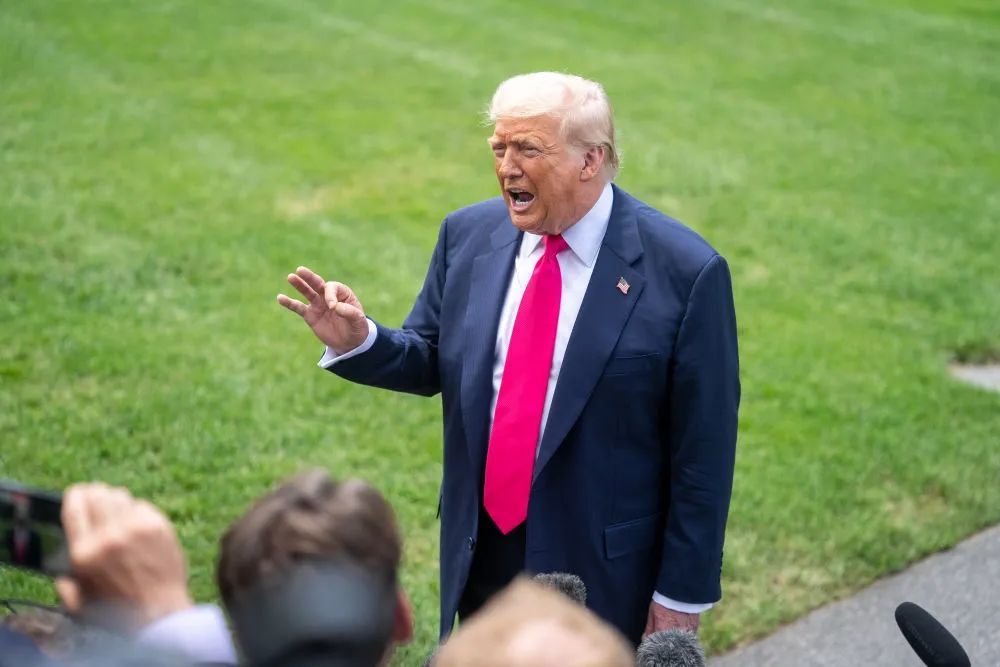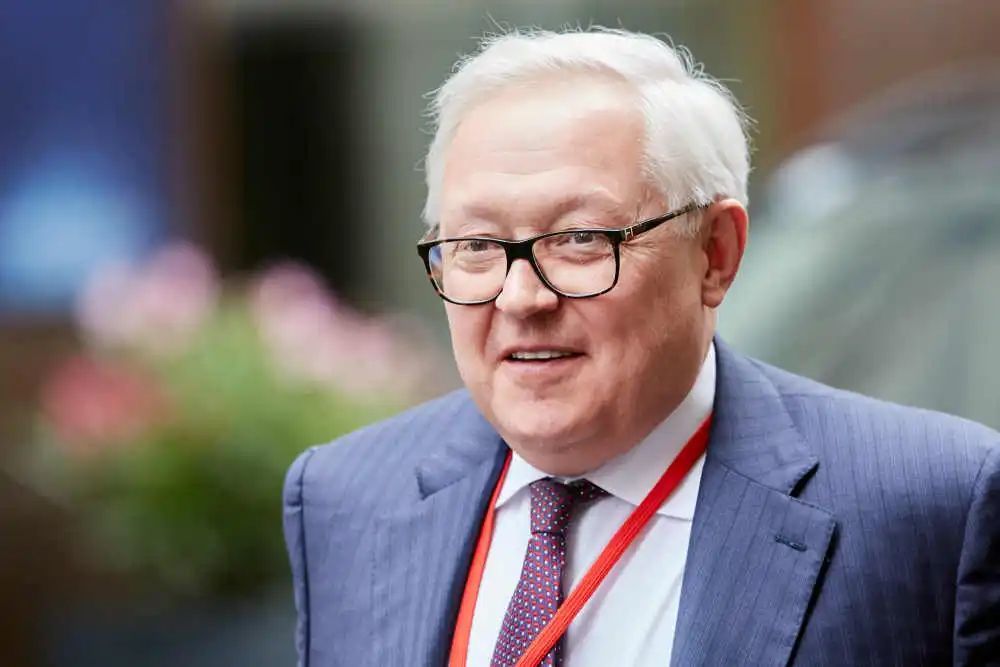On July 15, U.S. President Trump answered reporters’ questions at the White House in Washington. Photo by Hu Yousong, Xinhua News Agency.

NBC News reported that Trump made this statement when asked whether he believed Ukraine should target Moscow. Regarding whether the U.S. would provide Ukraine with long-range missiles, Trump replied, “No, we’re not going to do that.”
When asked if he sided with Ukraine, Trump stated, “I don’t side with anyone.” He also indicated that Russian President Putin should agree to a ceasefire agreement within a 50-day “deadline” or face sanctions.
According to a report by the Financial Times on the 15th, during a recent phone call with Zelenskyy, Trump urged Ukraine to increase its attacks on Russian territory, even inquiring whether Ukraine could strike Moscow and Saint Petersburg if the US provided long-range weapons. A White House spokesperson later denied this account, claiming the Financial Times selectively quoted the conversation.
A report, citing two informed sources, revealed details of a phone conversation between Trump and Zelensky on April 4th. During the call, Trump reportedly asked, “Volodymyr (Zelenskyy), can you strike Moscow? … Can you also strike Saint Petersburg?” Zelensky allegedly replied, “Certainly. If you provide us with the weapons, we can.”
Russian Deputy Foreign Minister: Ultimatums to Russia are unacceptable
On the 15th, Russian Deputy Foreign Minister Ryabkov responded to Trump’s remarks concerning Russia, stating that any attempt to impose conditions or ultimatums on Russia is unacceptable. If diplomatic efforts fail, Russia’s special military operation in Ukraine will continue.
Photo shows Russian Deputy Foreign Minister Sergey Ryabkov arriving at the Lower Belvedere Palace in Vienna, Austria on June 22, 2020, to participate in a new round of US-Russia arms control talks. Photo by Xinhua News Agency (Georges Schneider).
On the same day, Ryabkov told the media in Moscow that Russia’s aforementioned position was “unwavering” and hoped that the United States and NATO would “take this extremely seriously.” He said that Russian President Putin had stated more than once, “We are willing to negotiate; a diplomatic solution is preferable for us.”
On February 15, Presidential Press Secretary Dmitry Peskov stated that Russia awaits Ukraine’s proposal for a date for the third round of direct talks but has yet to receive one. Judging from recent statements by European representatives, they seem to prefer an escalation of the conflict. Decisions from the US, NATO, and the EU appear to be signaling Ukraine to continue the war.
According to the Ukrainian National News Agency’s report on July 15th, the Verkhovna Rada (Ukraine’s parliament) voted to extend the country’s martial law and military mobilization for another 90 days, as proposed by President Zelenskyy on July 14th.

On July 10, in Kyiv’s Shevchenkivskyi district, rescue workers dismantle a residential building damaged in an air raid. Photo by Peter Druk for Xinhua.
According to reports citing Ukrainian MP Yaroslav Zheleznyak, 320 parliamentarians voted in favor, exceeding the required minimum of 226 votes for the bill’s passage.
Under the draft, Ukraine’s nationwide martial law and military mobilization, set to expire on August 6, will be extended to November 5. This marks the 16th time the Verkhovna Rada has approved an extension of this decree since the escalation of the Russo-Ukrainian conflict in February 2022.
Furthermore, the Ukrainian parliament also voted to approve Ukraine’s temporary withdrawal from the Ottawa Convention on anti-personnel mines on the same day.
According to an explanatory document from the Verkhovna Rada, Ukraine’s withdrawal from the treaty is largely due to the “unequal” positions of Ukraine and Russia regarding landmines. Since Russia is not a party to the Ottawa Treaty, this creates an advantage for Russia and limits Ukraine’s ability to defend itself effectively. Ukraine will temporarily withdraw from the treaty until a complete ceasefire between Ukraine and Russia is achieved.
The Ottawa Treaty, officially effective in 1999, prohibits the use, stockpiling, production, and transfer of anti-personnel landmines. In May 2005, the Verkhovna Rada (Ukrainian parliament) approved Ukraine’s accession to the treaty. On June 29, President Zelenskyy signed a decree approving the National Security and Defense Council’s decision for Ukraine to withdraw from the Ottawa Treaty. The Ukrainian Cabinet subsequently initiated the withdrawal process.